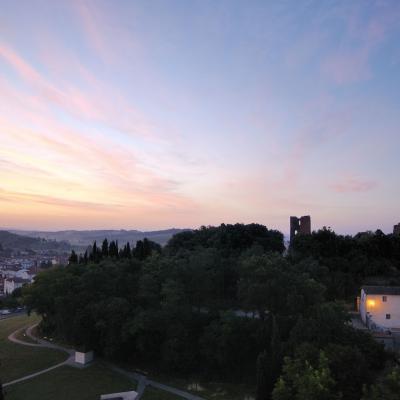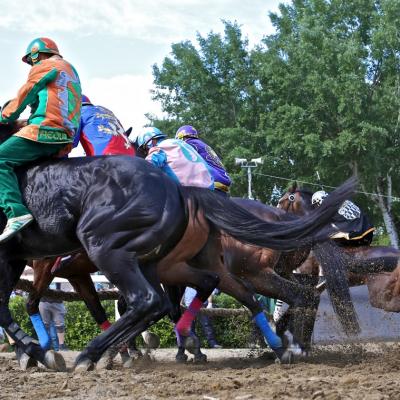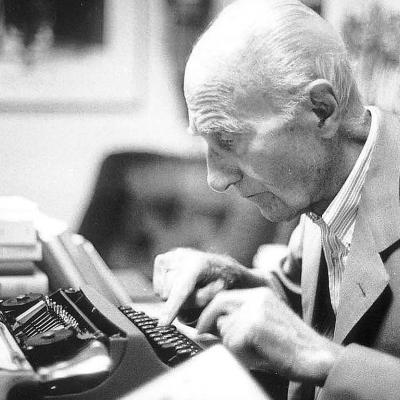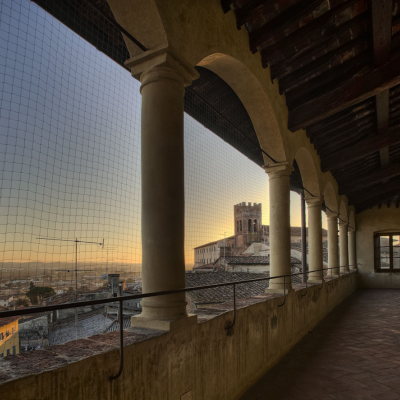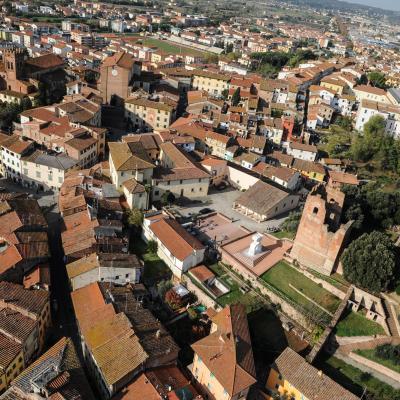The only advice I can give - and which I regularly give - to young people is this: fight for what you believe in. You will lose, as I did, all the battles. But only one you can win. The one who hires every morning, in front of the mirror.
The rooms of Indro
In Fucecchio, an itinerary dedicated to this extraordinary figure of the twentieth century can only start from the Montanelli Bassi Foundation (www.fondazionemontanelli.it), which he himself established in 1987. Here, in the rooms full of history and suggestions of the Palazzo della Volta he still feels the unmistakable presence of Indro.
Since 2001, by testamentary will, the Foundation has hosted the studios of Milan and Rome, transferred here in full, with all the books, papers, personal objects and furnishings, which better describe the personality and passions of Montanelli.
Entering the Milanese studio, one is led to approach the solid wooden desk, built by the "grandfather" Emilio Bassi at the beginning of the twentieth century, where the famous Lettera 22 typewriter "rests", after many years of work under the tireless fingers by Indro. The agenda with the latest appointments, the favorite armchair, the books autographed by other famous writers, the photographs in the Roman studio and the library, where all his works are kept, reveal a hidden and more intimate side of the journalist than in these rooms appear less distant.
Montanelli's bond with his Fucecchio is also testified by the presence of a collection of works by fellow citizen Arturo Checchi, which he wanted to donate to his Foundation.
Villa Bassi, or the cherry garden
In the nearby town of Vedute, there is another place that was very dear to Indro: it is Villa Bassi, where as a boy he spent a lot of time as a guest of the family of the Mayor Emilio Bassi, whose children took lessons from Montanelli's father.
In his writings, the journalist talks about the villa as the "cherry garden" and confesses his "dream of Vedute", in which he imagined returning to this place of his youth and meeting another himself, who accused him of having betrayed its roots. The villa is privately owned but is still visible from the street.
The farewell of an "including genius"
Montanelli's ashes rest in an urn inside the family tomb in the municipal cemetery of Fucecchio. Perhaps not everyone knows it, but Indro, since the 1950s, used to write here and there, where he happened, hypothetical (and we must say, caustic) epitaphs for the tombs of famous people who, during his long and adventurous life, he was able to meet. And he certainly did not spare himself for which he wrote with great self-irony:
Genius included
he explained to the others
what
he himself
did not understand.
The entire collection of sharp epitaphs is collected in the amusing essay "Memories in hatred. Sharp portraits for excellent corpses" (Rizzoli, 2011).


